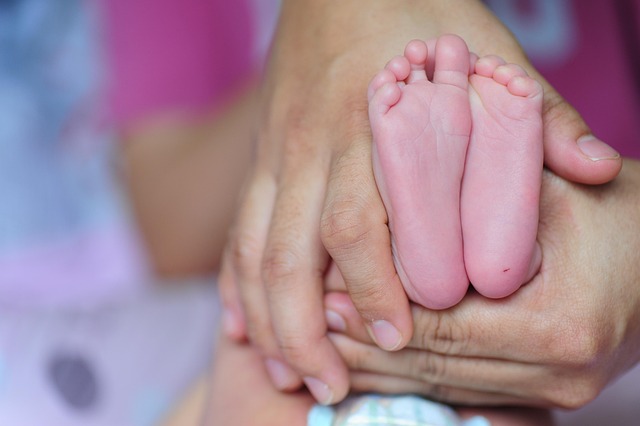Oregon's legal framework strongly protects parental rights, emphasizing family connections and stable environments for children. Parental rights advocacy groups support parents navigating child welfare services, offering education, resources, and a collective voice to challenge inaccurate allegations and maintain custody. The state provides extensive resources like legal aid, counseling, and parenting classes through the Oregon DHS and local organizations, empowering parents to advocate for their children's best interests.
In Oregon, understanding and protecting parental rights is paramount for families facing child welfare involvement. This comprehensive guide explores crucial aspects of parental advocacy, from navigating complex legal systems to accessing community support. We delve into Oregon’s parental rights laws, providing insights on how parents can assert their rights while ensuring the best interests of their children are served. Discover effective strategies for advocacy and explore available resources to empower parents in this challenging journey.
- Understanding Oregon's Parental Rights Laws
- Navigating Child Welfare Involvement
- Advocacy Strategies for Parents
- Legal Protections and Resources
- Supporting Families: Community Efforts
Understanding Oregon's Parental Rights Laws

In Oregon, parental rights are protected and advocated for by a robust legal framework designed to ensure fairness and due process. Understanding these laws is crucial for parents navigating the child welfare system. The state’s legislation provides clear guidelines on the rights of parents involved in custody and adoption proceedings, offering them significant protections and an active role in their children’s lives.
Oregon’s parental rights laws emphasize the importance of preserving family connections and promoting stable environments for children. Parents have the right to legal representation, to be informed about any actions affecting their parental status, and to participate in decision-making processes related to their children’s welfare. This advocacy ensures that parents can actively contribute to their child’s future while safeguarding their own rights throughout the process.
Navigating Child Welfare Involvement

Navigating Child Welfare involvement can be a complex and emotionally charged process for parents, highlighting the critical need for strong parental rights advocacy. When a child’s well-being is at stake, understanding one’s rights and responsibilities is paramount. Many families in Oregon face challenges when dealing with child welfare services, often leading to concerns about potential separation from their children.
Parental rights advocacy ensures that parents are informed, supported, and able to actively participate in decisions affecting their family. It empowers them to protect their parental rights, challenge unfounded allegations, and maintain custody where possible. Effective advocacy provides a safety net, enabling families to navigate the intricate systems involved in child welfare while safeguarding their fundamental bonds with their children.
Advocacy Strategies for Parents

In navigating Oregon’s child welfare system, parents can greatly benefit from organized parental rights advocacy groups and strategies. These groups offer support, education, and a collective voice to advocate for fair treatment and procedures that protect the rights of families involved with child protective services (CPS). Through parental rights advocacy, parents can learn about their legal rights, understand the CPS process, and connect with other families facing similar challenges.
Effective advocacy strategies empower parents to communicate openly with CPS caseworkers, participate actively in case planning, and seek legal representation when necessary. By organizing information sessions, workshops, and networking events, these support groups ensure that parents are equipped with the knowledge and resources needed to effectively defend their parental rights and make informed decisions regarding their children’s welfare.
Legal Protections and Resources

In Oregon, child welfare cases often involve complex legal processes, which is why understanding one’s parental rights is crucial for all parents. The state provides various resources and legal protections to ensure fair treatment during such proceedings. These include access to legal aid, where eligible parents can receive assistance from attorneys specializing in family law and parental rights advocacy.
The Oregon Department of Human Services (DHS) offers a range of services to support families, including counseling, parenting classes, and resource connections. They also facilitate the Parenting Time and Access Center, which helps navigate visitation schedules and ensures parents’ rights are respected throughout the child welfare process. These initiatives aim to empower parents, provide clarity, and safeguard their legal standing in ensuring the best outcomes for their children.
Supporting Families: Community Efforts

Supporting families is a cornerstone of Oregon’s child welfare system, with various community efforts focused on strengthening parental rights and advocating for families in need. Local organizations and initiatives play a vital role in providing resources, education, and support services to parents, ensuring they are equipped to nurture their children effectively.
Through workshops, counseling sessions, and parent-support groups, these community efforts aim to empower parents by offering guidance on parenting techniques, coping strategies, and legal rights. By fostering an environment of collaboration and understanding, these initiatives promote the well-being of both families and children, ultimately enhancing the stability and security within Oregon’s communities.
